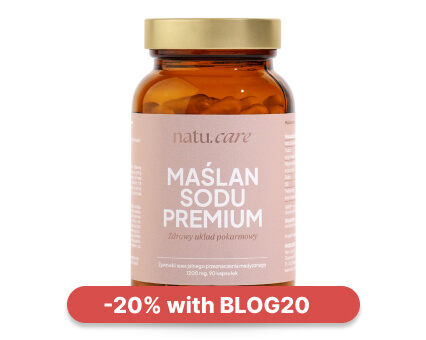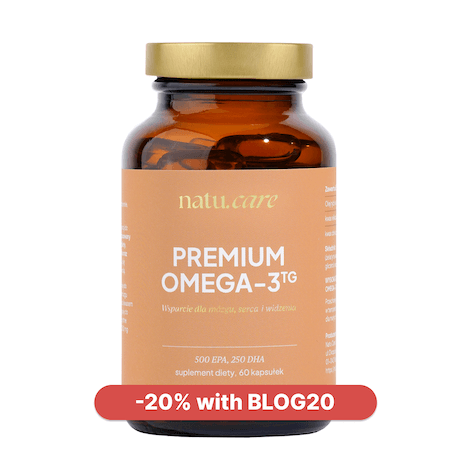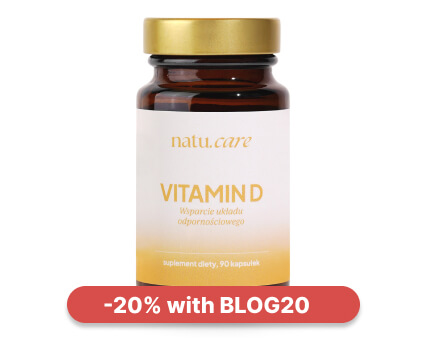Fluoride in the body: what it is, harmfulness, properties, what it is in
Fluoride is an essential mineral for the proper functioning of the body. How does it work and is it harmful? Check!


Learn more about our editorial process
.

Learn more about our editorial process
.

Learn more about our editorial process
.

Learn more about our editorial process
.
Why you can trust us
Articles on Natu.Care are written based on scientific research, data from government websites and other reliable sources. The texts are written in cooperation with doctors, nutritionists and other health and beauty experts. Articles are reviewed before publication and during significant updates.
.Learn more about our editorial process
.Information about advertisements
Content on Natu.Care may contain links to products from the sale of which we may receive a commission. When creating content, we adhere to high editorial standards and take care to be objective about the products discussed. The presence of affiliate links is not dictated by our partners, and we select the products we review ourselves completely independently.
.Learn more about our terms and Conditions
.Remember fluoridation in primary school? That specific aftertaste was actually fluoride. It used to be that almost all pupils ran around the corridor with foam in their mouths, and today the trend seems to be the opposite - fluoride is considered harmful by many people.
Contrary to appearances, an adequate amount of it is important for health. Therefore, together with Ilona Krzak, M.Sc. in Pharmacy, we will explain how fluoride works, when it is dangerous and how to use it.
The following is an overview of how fluoride works.
From this article you will learn:
- What is fluoride and what symbol it has.
- What is fluoride?
- Whether fluoride is harmful and how it works.
- What are the symptoms of fluoride deficiency and excess.
- What are the symptoms of fluoride deficiency and excess.
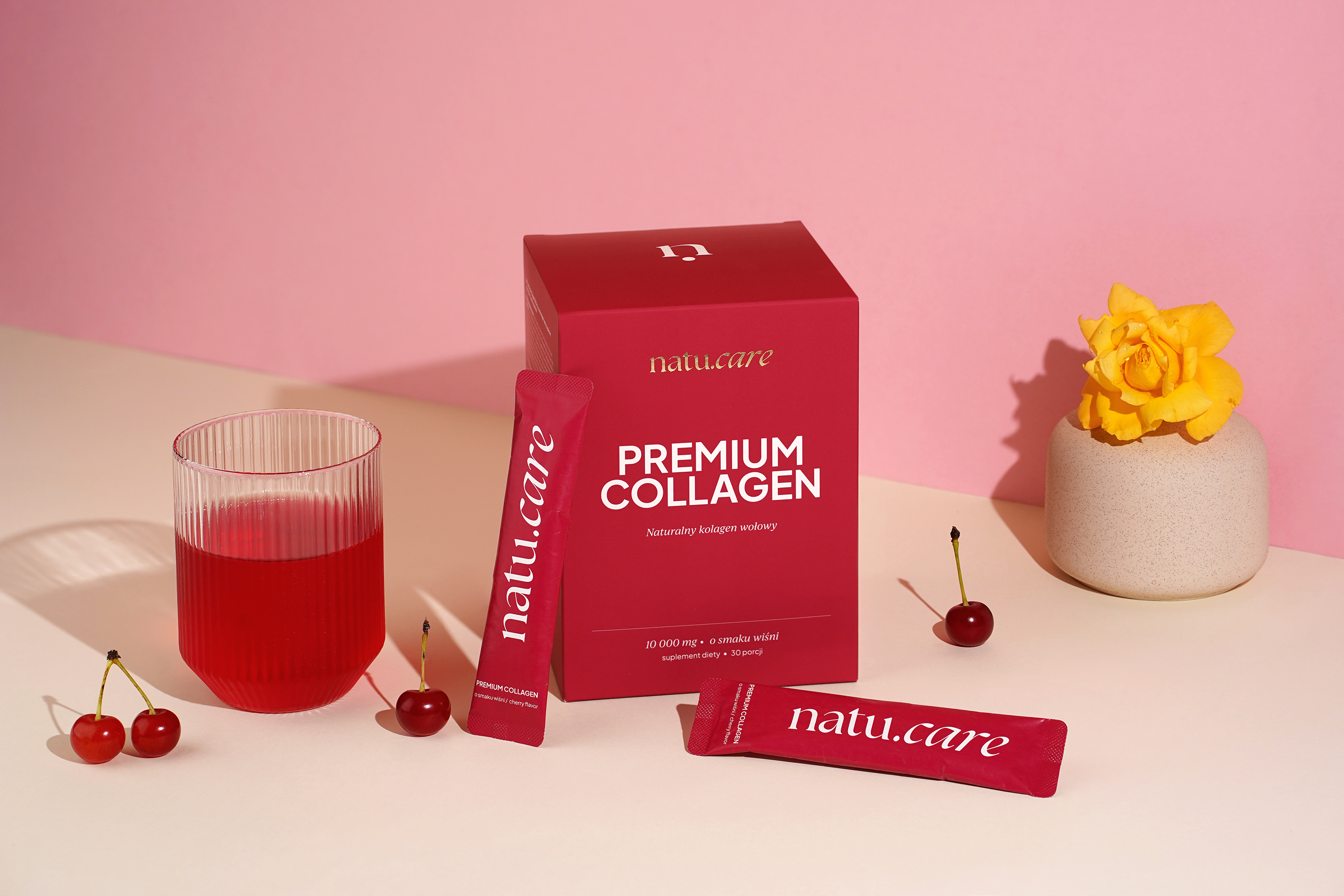
Sprawdź, jak może on zadbać o zdrowie Twoich stawów i urodę! Kolagen Premium (10 000 mg) wiśnia
Natu.Care Kolagen Premium Sport 10000 mg, wiśnia
Natu.Care Kolagen Premium dla zdrowia stawów, skóry, paznokci i włosów. Wołowy kolagen w optymalnej dawce 10 000 mg. Przebadany przez niezależne laboratorium.
Sprawdź cenę
Ten kolagen dobrze się rozpuszcza, super smakuje – jak taki soczek wiśniowy. Moje włosy przestały wypadać, są gęstsze i zdrowsze a cera promienna.@Dominika P.
What is fluoride?
.
Fluoride is a mineral that plays key roles in the body. It is essential for the proper development and maintenance of tooth and bone health. Nevertheless, an excess of it can be harmful. Too much of this mineral causes discolouration and cracks on the enamel of the teeth. Therefore, moderation and proper portioning is importantand.
What symbol does fluoride have?
.
Fluorine, a chemical element with an atomic number of 9, is represented in the periodic table by the symbol "F". This compound - due to its chemical properties - is used extensively in, among other things, dentistry and various industries, such as nuclear, metallurgical or chemicaland.
Is fluoride harmful?
.
Fluoride, like many other substances, can be harmful to health if consumed in excessive amounts. Too much exposure to fluoride, especially during tooth development in children, can lead to fluorosis. This is a condition that causes discolouration and cracks on the surface of teeth, potentially affecting the appearance and health of the mouthand.
The effects of high doses of fluoride can also include bone weakness and problems with the skin, as well as the digestive and nervous systems. Furthermore, prolonged exposure to high concentrations of fluoride can lead to serious health problems, including poisoning and deathand.
Remember, however, that common sources of fluoride, such as toothpaste and tap water, usually contain the mineral in safe amounts for the body.
When fluoride is consumed excessively, pathological changes in ameloblasts occur during enamel development, resulting in difficulties in the formation of normal enamel..
 .
.
Ilona Krzak Master of Pharmacy
Natu.Care Collagen Premium 5000 mg, mango & passion fruit

- Collagen content: 5000 mg marine collagen hydrolysate
- Additional active ingredients: vitamin C, low molecular weight hyaluronic acid (and L-theanine and coenzyme Q10 in cocoa flavoured collagen or vitamin A and vitamin E in mango–passion fruit flavoured collagen)
- Form: powder sachets
- Dose: 1 sachet per day
- Sufficient for: 30 days
Product description
Fish collagen from the Natu.Care brand in a dose of 5000 mg, based on certified ingredients of the best quality. Regular supplementation will positively influence the appearance of the skinóry, hairów and nails – they will be rebuilt and strengthened from the inside.
In addition to collagen, which is valuable for health and beauty, it also offers other active ingredients that help to maintain a youthful complexion, shiny hair and strong nails.
The formula contains a sufficient portion of the active ingredient to positively affect joints, the musculoskeletal system and immunity.
Natu.Care Premium Collagen is available in two flavours – Cacao Bloom and Rise&Shine. Both formulas are based on the following active ingredients: marine collagen hydrolysate, wild roseóbud extract and hyaluronic acid.
Additionally, Cacao Bloom contains natural L-theanine, coenzyme Q10 and defatted Dutch cacao. Rise&Shine instead contains vitamin E and vitamin A.
These are the best collagens in the world.
These best fish collagens on the market also rós taste – Cacao Bloom is a treat for chocolate lovers. Rise&Shine will appeal to those whoólike the refreshing taste of mangoófruit and passion fruit.
Pros and cons
Pros:
- Vitamin C supports the body's collagen production, enhancing its effectiveness.
- An effective dose of hyaluronic acid, which additionally supports skin hydration and joint health.
- Fish collagen absorbs 50% better. Additionally, the manufacturer specifies the fish species it is sourced from (Atlantic cod).
- The composition has been tested by the independent and accredited J.S. Hamilton laboratory.
- MSC (Marine Stewardship Council) quality certification, which confirms that the collagen source supports sustainable fishing practices.
Cons:
- None.
Additional information
Natu.Care's fish collagen receives praise for its delicious taste. You won't find the fishy aftertaste that often comes through in other collagens. Plus, you have two tasty flavors to choose from: cocoa and mango-passionfruit.
Active ingredients like coenzyme Q10, hyaluronic acid, and natural L-theanine provide anti-inflammatory and antioxidant benefits while slowing down aging processes.
User review
Super, after about 6 weeks of use, the skin on my face became noticeably firmer. Wonderful taste.
Ania ZalewskaNatu.Care customer
Natu.Care Premium collagen 10 000 mg, mango-maracuja
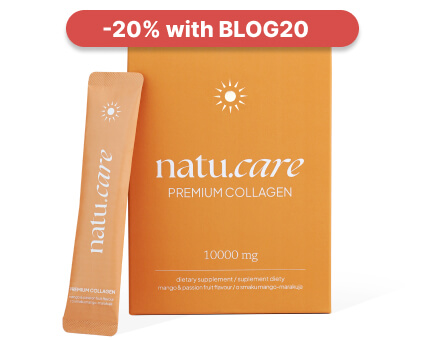
- Collagen content: 10,000 mg marine collagen hydrolysate
- Additional active ingredients: vitamin C, low molecular weight hyaluronic acid (and L-theanine and coenzyme Q10 in cocoa flavoured collagen or vitamin A and vitamin E in mango–passion fruit flavoured collagen)
- Form: powder sachets
- Dose: 1 sachet per day
- Sufficient for: 30 days
Product description
One of the strongest collagens on the market, whichós provides as much as 10,000 mg in a daily serving. This allows the formula to effectively support the condition of the skin, hair and nails.
With this supplement, you will support your beauty, which will allow you to visually stop the ageing process and feel a second youth!
Natu.Care Collagen Premium 10 000 mg comes in two flavours – cherry and mango-maracuja. Both formulas have the same product backbone – collagen, hyaluronic acid and vitamin C.
In the cherry version you additionally find glucosamine, chondroitin and Indian frankincense resin extract. Mango-maracuja, on the other hand, contains vitamin E and vitamin A.
Pros and cons
Pros:
- Tested collagen formula – SeaGarden, whose effects have been confirmed in clinical studies.
- Effective dose of hyaluronic acid, additionally moisturizing the skin and positively impacting joint health.
- Vitamin C supports the body’s natural collagen production.
- The composition has been tested by the independent and accredited J.S. Hamilton laboratory.
- The product has an MSC (Marine Stewardship Council) quality certification – the collagen source supports sustainable fishing practices.
Cons:
- None.
Additional information
Users praise Natu.Care Collagen Premium for the easy dissolvability of the powder.
User review
I noticed a significant improvement in my skin texture after a few weeks of taking collagen regularly. My complexion is now as soft as velvet!
Natu.Care Collagen Premium 10000 mg, cherry

- Collagen content: 10,000 mg of hydrolyzed bovine collagen
- Additional active ingredients: vitamin C, low molecular weight hyaluronic acid, glucosamine, chondroitin, extract of Indian frankincense resin (boswellia serrata)
- Form: powder sachets for drinking
- Serving: 1 sachet per day
- Lasts for: 30 days
Product description
One of the strongest collagens on the market, providing as much as 10,000 mg per daily serving. This product can effectively support the condition of joints, skin, hair, and nails.
With this supplement, you will support your skeletal and joint system as well as your beauty, helping you visually halt the aging process and feel rejuvenated!
Pros and cons
Pros:
- The daily portion of collagen is very large – as much as 10,000 mg.
- Proven collagen formula – COLLinstant, whose effectiveness has been confirmed in clinical studies.
- Effective dose of hyaluronic acid, which additionally moisturizes the skin and positively affects joint health.
- Vitamin C supports the body's natural collagen production.
- Glucosamine is a fundamental building block of compounds found in joint cartilage and a component of collagen that gives elasticity to connective tissue in tendons.
- Chondroitin is a natural component found in the human body, mainly in cartilage. This large molecule (mucopolysaccharide) has the ability to absorb water, which helps maintain the elasticity and resilience of cartilage.
- Frankincense resin extract supports blood circulation and joint mobility and reduces their stiffness. It may help alleviate inflammatory conditions.
- The composition has been tested by the independent and accredited J.S. Hamilton laboratory.
Cons:
- None.
Additional information
Users praise Natu.Care Collagen Premium for the easy dissolving of the powder.
Premium Sodium Butyrate
Product description
Premium Sodium Butyrate is a natural support for your digestive system. With a high dose of butyric acid (940 mg), it supports the regeneration of the intestinal mucosa, improving gut health and function, and aids in the absorption of nutrients. By taking care of your intestines, you're taking care of the health of your entire body.
Studies involving people suffering from irritable bowel syndrome confirm that sodium butyrate is ideal for supporting issues related to bacterial flora imbalances (for example, after antibiotic therapy), constipation and diarrhea, inflammation of the intestinal mucosa, or a diet low in fiber.
Premium Sodium Butyrate capsules are made using the innovative DRcaps® technology. This guarantees that the active ingredients in the product are protected from the destructive effects of stomach acids and digestive enzymes. As a result, we can be sure that the beneficial ingredients are released in the small intestine and are fully absorbed by our body.
Premium Sodium Butyrate from Natu Care is 100% tested, and its composition contains only the highest quality raw materials.
Pros and cons
Pros:
- Supports digestive system function
- Helpful for various gastrointestinal conditions, including IBS
- High dose of butyric acid in each capsule
- Eco-friendly, clean, and tested composition
- Free from added sugar, gluten, GMOs, and lactose
- Innovative capsule technology - DRcaps
Cons:
- None
Additional Information
Take 3 capsules daily at any time of the day, preferably with a meal. Swallow the capsules whole with water.
Premium Sodium Butyrate is intended for adults.
The product should be used under medical supervision.
User review
I've been using the product for 2 weeks. My stomach feels lighter, and my digestion has improved. I recommend it.
Natu.Care Premium Magnesium + Vitamin B6
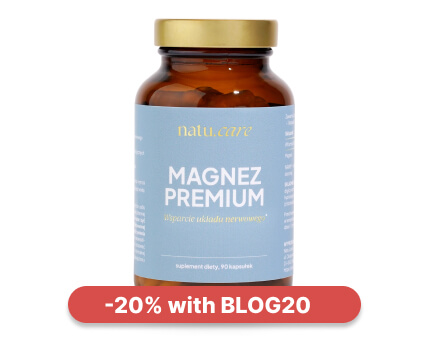
- Magnesium content per day: 305 mg
- Additional active ingredients: Vitamin B6 (2.1 mg)
- Form: capsules
- Serving size: 3 capsules per day
- Sufficient for: 30 days
Product description
The Premium Magnesium + Vitamin B6 dietary supplement is a comprehensive product that combines three organic forms of magnesium (citrate, malate, and diglycinate) and vitamin B6 in highly absorbable forms.
Magnesium is an essential mineral without which our bodies cannot function properly. It supports the immune, nervous, and muscular systems, maintains electrolyte balance, and is involved in cell division and the regulation of mental functions.
Research shows that magnesium supplementation is even more effective when accompanied by vitamin B6, which is included in our product. Vitamin B6 is responsible for the proper functioning of the nervous and immune systems, as well as the proper functioning of the heart.
If you want to safely get rid of feelings of fatigue, concentration problems, hair loss, muscle cramps, trembling, or irritability, reach for Premium Magnesium from Natu.Care, tested by the independent, certified laboratory J.S. Hamilton Poland.
Pros and cons
Pros
- Supports the proper functioning of the nervous and immune systems.
- Reduces feelings of fatigue and tiredness.
- Maintains proper psychological functions.
- The purity of the ingredients (free from anti-caking agents, artificial fillers, and additives such as titanium dioxide, microcrystalline cellulose, talc, magnesium stearate, and silicon dioxide) has been confirmed by laboratory tests.
- High absorption of ingredients.
- Soft capsules that are easy to swallow.
- Suitable for vegetarians and vegans.
Cons
- None.
Additional information
Take with a meal, 3 capsules per day.
The capsules should be taken with at least 250 ml of water.
If you have trouble sleeping, it is advisable to take 1 capsule in the morning and 2 capsules in the evening, no later than 4 hours before bedtime.
Avoid combining with products high in calcium (milk, yogurt, cheese), as this may negatively affect magnesium absorption.
Pregnant and breastfeeding women should consult a doctor before starting supplementation.
User review
I’m very impressed with the speed of delivery. The product itself is of high quality and absorbs well. After two weeks of supplementation, I’ve noticed a significant improvement in muscle recovery, especially during periods of intense training. I highly recommend it!
Product description
The dietary supplement contains omega-3ᵀᴳ, or omega-3 acids in the form of trójglyceridesów. Scientific studies suggest that this form of fatty acidsós up to 2 times better absorbed than the estersós present in many dietary supplements on the market. This means that you are assured of their effectiveness and of supplying yourself with valuable omega acids.
Fatty acids omega-3 are derived from wild anchovy oil. It is a rich source of healthy fats that are essential for the health of the cardiovascular, immune and nervous systems, as well as the proper function of vision, joints muscles.
Scientific research suggests that wild anchovies are a good source of healthy fats.
Scientific research also suggests that an adequate intake of omega-3 fatty acidsós protects against and supports the treatment of depression and anxiety disorders. In addition, omega-3s influence the hydration and appearance of the skinóry and support healthy sleep.
.
The formula contains a total of 750 mg of EPA+DHA acidsós, which is three times higher than the recommended minimum of 250 mg for the Polish population. Omega-3 TG Premium has studies indicating that its TOTOX is 9, which is a very good result.
Supplementation of omega-3 fatty acidsóis recommended for anyone who does not eat 1–2 portions (approximately 300 g) of oily fish per week. Children during growth, seniors, physically active people, vegans and vegetarians, as well as patients undergoing cardiovascular treatment and prevention of heart disease also have an increased need.
Pros and cons
The dietary supplement contains omega-3ᵀᴳ, or omega-3 acids in the form of trójglyceridesów. Scientific studies suggest that this form of fatty acidsós up to 2 times better absorbed than the estersós present in many dietary supplements on the market. This means that you are assured of their effectiveness and of supplying yourself with valuable omega acids.
Fatty acids omega-3 are derived from wild anchovy oil. It is a rich source of healthy fats that are essential for the health of the cardiovascular, immune and nervous systems, as well as the proper function of vision, joints muscles.
Scientific research suggests that wild anchovies are a good source of healthy fats.
Scientific research also suggests that an adequate intake of omega-3 fatty acidsós protects against and supports the treatment of depression and anxiety disorders. In addition, omega-3s influence the hydration and appearance of the skinóry and support healthy sleep.
.
The formula contains a total of 750 mg of EPA+DHA acidsós, which is three times higher than the recommended minimum of 250 mg for the Polish population. Omega-3 TG Premium has studies indicating that its TOTOX is 9, which is a very good result.
Supplementation of omega-3 fatty acidsóis recommended for anyone who does not eat 1–2 portions (approximately 300 g) of oily fish per week. Children during growth, seniors, physically active people, vegans and vegetarians, as well as patients undergoing cardiovascular treatment and prevention of heart disease also have an increased need.
Additional information
The dietary supplement contains omega-3ᵀᴳ, or omega-3 acids in the form of trójglyceridesów. Scientific studies suggest that this form of fatty acidsós up to 2 times better absorbed than the estersós present in many dietary supplements on the market. This means that you are assured of their effectiveness and of supplying yourself with valuable omega acids.
Fatty acids omega-3 are derived from wild anchovy oil. It is a rich source of healthy fats that are essential for the health of the cardiovascular, immune and nervous systems, as well as the proper function of vision, joints muscles.
Scientific research suggests that wild anchovies are a good source of healthy fats.
Scientific research also suggests that an adequate intake of omega-3 fatty acidsós protects against and supports the treatment of depression and anxiety disorders. In addition, omega-3s influence the hydration and appearance of the skinóry and support healthy sleep.
.
The formula contains a total of 750 mg of EPA+DHA acidsós, which is three times higher than the recommended minimum of 250 mg for the Polish population. Omega-3 TG Premium has studies indicating that its TOTOX is 9, which is a very good result.
Supplementation of omega-3 fatty acidsóis recommended for anyone who does not eat 1–2 portions (approximately 300 g) of oily fish per week. Children during growth, seniors, physically active people, vegans and vegetarians, as well as patients undergoing cardiovascular treatment and prevention of heart disease also have an increased need.
Expert opinion
The dietary supplement contains omega-3ᵀᴳ, or omega-3 acids in the form of trójglyceridesów. Scientific studies suggest that this form of fatty acidsós up to 2 times better absorbed than the estersós present in many dietary supplements on the market. This means that you are assured of their effectiveness and of supplying yourself with valuable omega acids.
Fatty acids omega-3 are derived from wild anchovy oil. It is a rich source of healthy fats that are essential for the health of the cardiovascular, immune and nervous systems, as well as the proper function of vision, joints muscles.
Scientific research suggests that wild anchovies are a good source of healthy fats.
Scientific research also suggests that an adequate intake of omega-3 fatty acidsós protects against and supports the treatment of depression and anxiety disorders. In addition, omega-3s influence the hydration and appearance of the skinóry and support healthy sleep.
.
The formula contains a total of 750 mg of EPA+DHA acidsós, which is three times higher than the recommended minimum of 250 mg for the Polish population. Omega-3 TG Premium has studies indicating that its TOTOX is 9, which is a very good result.
Supplementation of omega-3 fatty acidsóis recommended for anyone who does not eat 1–2 portions (approximately 300 g) of oily fish per week. Children during growth, seniors, physically active people, vegans and vegetarians, as well as patients undergoing cardiovascular treatment and prevention of heart disease also have an increased need.
Natu.Care Vitamin D 2000 UI
Product description
Vitamin D plays a crucial role in our health and well-being. It affects calcium and phosphate metabolism, which translates to healthy bones and teeth. It also helps regulate the immune system, and studies indicate its influence on the functioning of the nervous system.
Vitamin D, although called a “vitamin,” is actually a prohormone that our body produces on its own, primarily under the influence of sunlight. Unfortunately, our modern lifestyle contributes to deficiencies of this essential vitamin. Working in enclosed office buildings, using (necessary!) SPF creams, and covering the body with clothing all make it very difficult, if not impossible, to obtain adequate levels of vitamin D from sunlight. This is why appropriate, year-round supplementation is so crucial.
Vitamin D from Natu.Care is a well-tested vitamin D3 suspended in safflower oil, a plant known for its numerous health benefits. The convenient, easy-to-swallow capsule will make supplementation a part of your daily, healthy routine, improving your overall well-being.
Pros and cons
Pros:
- Ensures proper functioning of the immune system
- Supports the maintenance of healthy bones and teeth
- Maintains proper heart, kidney, and muscle function
- Tested by an independent, certified laboratory
- Convenient and easy-to-swallow capsule
- Clean composition - free from added sugar, gluten, GMOs, lactose, and without preservatives or colorants
Cons:
- None.
Additional Information
Pregnant women and breastfeeding mothers should consult a doctor before using the product. This dietary supplement is intended for a healthy adult population up to the age of 75.
Collagen Booster - Glow Stories
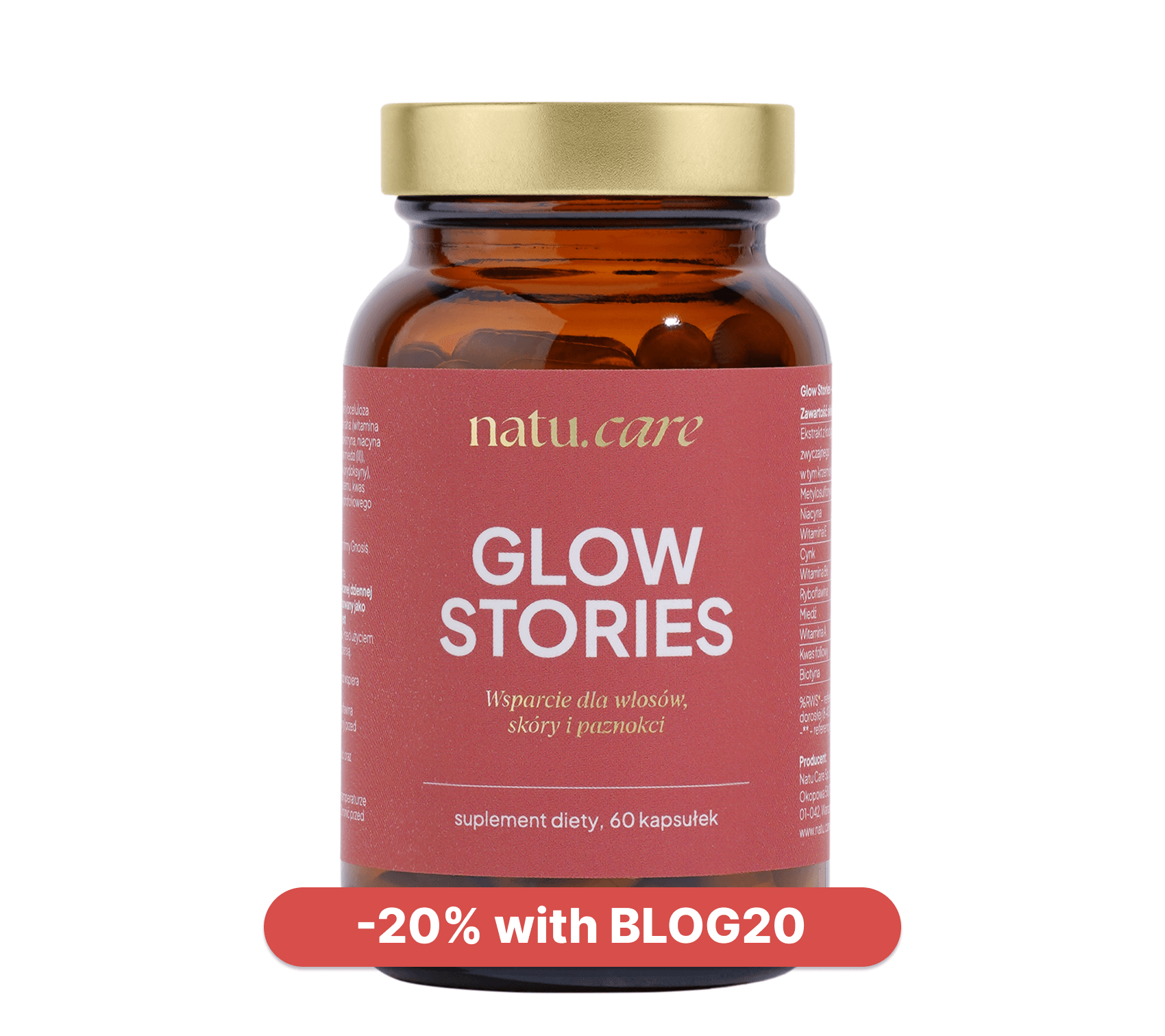
- Active ingredients: bamboo shoot extract, Quatrefolic®, L-Methionine, L-cysteine, vitamin E, vitamin A, niacin (vitamin B3), vitamin B6, vitamin B2 (riboflavin), biotin, zinc, copper
- .
- Form: capsules
- .
- Dose: 1 capsule per day
- .
- Sufficient for: 60 days
- .
Product description
A dietary supplement containing vitamins, minerals and plant extracts thatósupport the skinóhand, hair and nails. The product is especially distinguished by the form of folate – it is Quatrefolic, whichós absorbed very well and is natural.
In addition to valuable vitamins and minerals, such as vitamin A, E, B3, B2 and biotin, the formula contains bamboo shoot extract, whichóry further enhances your beauty.
Pros and cons
A dietary supplement containing vitamins, minerals and plant extracts thatósupport the skinóhand, hair and nails. The product is especially distinguished by the form of folate – it is Quatrefolic, whichós absorbed very well and is natural.
In addition to valuable vitamins and minerals, such as vitamin A, E, B3, B2 and biotin, the formula contains bamboo shoot extract, whichóry further enhances your beauty.
Additional information
A dietary supplement containing vitamins, minerals and plant extracts thatósupport the skinóhand, hair and nails. The product is especially distinguished by the form of folate – it is Quatrefolic, whichós absorbed very well and is natural.
In addition to valuable vitamins and minerals, such as vitamin A, E, B3, B2 and biotin, the formula contains bamboo shoot extract, whichóry further enhances your beauty.
Fluorine - properties and functions in the body
.
Fluorine is an element that is very important for human health. It is crucial for the condition of teeth and bones. It exhibits unique properties that affect various functions in the body. What aspects does it particularly affect?
Tooth health
.
Fluoride has a significant impact on dental health. First and foremost, it affects the enamel, promoting its resistance to decay-causing bacteria. Fluoride, or more specifically, its ions, are part of the tooth enamel, so adequate levels of fluoride affect the condition of teethand.
Regular use of fluoride contributes to the remineralisation process, reversing the early stages of decay and helping to maintain dental health.
.
On the other hand, however, an excess of this element can lead to a condition called fluorosis. This is characterised by the formation of stains, discolouration or cracks on the surface of the enamel, which can be aesthetically unpleasant and potentially damaging to dental health.
The condition is also known as fluorosis.
It is therefore all about balance - the right amount of fluoride in the diet is crucial for dental health.
Fluoride is a trace element essential for metabolism and can penetrate all tissues. It accumulates in the human body, but is mainly deposited in teeth and bones..
 .
.
Ilona Krzak Master of Pharmacy
.
Bone condition
.
Fluoride also has a significant impact on bone health. Similar to tooth enamel, fluoride can absorb into bone structure, replacing some hydroxyl ions and forming compounds that can increase bone density. In this way, they improve both bone strength and potentially counteract diseases such as osteoporosisand.
Similar to teeth, however, overexposure to fluoride leads to the formation of new bone tissue too quickly. This can lead to bones that are denser but also brittle and prone to fracture. Therefore, a balance in fluoride intake is crucial for bone health.
Regulation of metabolism
.
Fluoride may affect the regulation of metabolism in the body. Some evidence suggests that it supports the action of certain enzymes that are key to metabolic processes such as digestion and nutrient utilisationand.
This interaction is important because proteins control most of the biochemical processes in cells, influencing the rate of metabolism.
Tooth fluoride
.
Tooth fluoride is most commonly found in products such as toothpastes, mouthwashes and special gels used in professional dental prevention. It is also found in some drinking water sources - either naturally or added artificially to improve dental healthand.
During daily use, fluoride toothpaste should be used washing at least twice a day. Rinsing with fluoride mouthwash is an additional way to provide your teeth with this compound. It is important not to swallow fluoride-containing products as they can be harmful to healthand.
For children, use toothpaste with less fluoride (as recommended by your dentist), as little ones may mistakenly swallow toothpaste. And excess fluoride in children can lead to fluorosis.
.
Is fluoride in toothpaste harmful?
.
Fluoride in toothpaste is not harmful as long as it is used correctly. It is an important mineral that helps protect teeth from decay by strengthening the enamel. However, problems can occur if fluoride is consumed in large amounts, especially by young children who may tend to swallow toothpaste.
Excessive amounts of this mineral can lead to fluorosis, which is characterised by discolouration and possible weakening of the teeth. Therefore, use toothpaste carefully.
Fluoride deficiency
.
Fluoride deficiency is a rare condition that can lead to an increased risk of tooth decay and a weakened skeletal system.
The causes of fluoride deficiency can vary, but are most commonly due to insufficient intake of the mineral. The reason may be its low content in the diet, for example by consuming water that does not naturally contain fluoride, or avoiding fluoridated products such as fluoride toothpaste. Other causes may include diseases that affect the body's ability to absorb this mineral, but these are rareand.
Symptoms of fluoride deficiency :
.
- Increased risk of tooth decay. .
- Tooth pain. .
- Changes in the structure of the teeth.
- Changes in the structure of the teeth.
- Bone fracture.
- Bone fracture.
Completing fluoride deficiency is based mainly on including products and drinks containing this mineral in the diet. Toothpaste and mouthwash with fluoride can also be used.
.
In cases of particularly low fluoride levels, dedicated prescription preparations may be used. And in extreme cases, it is not uncommon for specialist dental procedures to be needed.
Always, however, before starting fluoride supplementation, it is a good idea to consult your doctor or dentist to avoid excess levels of this element, which can also be harmful.
In the case of fluoride, we are not talking about recommended daily intakes, but permissible daily portions..
 .
.
Ilona Krzak Master of Pharmacy
.
Fluoride excess
.
Fluoride excess occurs due to chronic consumption of excessive amounts of this mineral. Although fluoride is beneficial to dental health, an overdose can lead to a number of health problemsand.
Products such as fluoride toothpaste, mouthwashes, fluoride supplements or drinking water and foods containing high concentrations of this mineral can be the cause of excess.
.
In young children in particular, who tend to swallow toothpaste during brushing, there is a risk of excess fluoride. Therefore, it is important to control the amount of toothpaste used and educate little ones not to swallow it.
Today's toothpaste is a good example of this.
Symptoms of excess fluorideand:
- Pigmentation, white spots or striations on teeth. .
- Pain and stiffness in the joints.
- Pain and stiffness in the joints.
- Dermal rashes.
- Dermatitis.
- Cracking on the surface of the teeth.
- Cracking on the surface of the teeth.
- Muscle weakness.
- Pain and stiffness in the joints.
- Lack of appetite.
- Lack of appetite.
- Nause of nausea. .
How to remove fluoride from the body?
.
The treatment of excess fluoride depends on the severity. In mild cases, minimising fluoride exposure is usually sufficient, often by changing the source of drinking water or oral hygiene products. In some cases, however, dental procedures may be neededand.
An excess of fluoride may also require treatment to address symptoms resulting from exposure to the mineral, such as bone and joint problems. In severe cases, medical and dietary support may be required to remove as much fluoride from the body as possible and alleviate symptoms.
Medical and dietary support may also be required to address symptoms.
Whatever the level of fluoride exposure, those with concerns about its effects should consult a doctor or dentist to discuss optimal treatment strategies.
Where does fluoride occur?
.
Fluoride is present in both food and water because it is a natural mineral. Certain types of fish and seafood, such as shrimp and cod, contain higher levels of fluoride. Other foods that contain fluoride include green tea, wine, peas, potatoes and some varieties of riceand.
Additionally, fluoride is often added to drinking water as part of a public initiative known as water fluoridation, which aims to promote oral health. It is also added to certain grades of table salt and toothpaste.
Fluoride - uses
.
Fluorine is a chemical element with multiple uses, both in technology and medicine. Its amazing properties make it integral to many processes and productsand.
- .
- Tooth protection. Fluoride is found in many toothpastes and mouthwashes. It has a prophylactic effect against tooth decay by remineralising enamel, which helps to strengthen teeth and prevent decay.
- Production of Teflon. Fluoride is a key ingredient in the production of Teflon, a highly heat-resistant material used in cooking utensils, among other things.
- Fluoridation of water. Fluoride is often added to drinking water as a caries preventative, especially where access to dental care is limited.
- Medicine. Fluoride compounds are used in selected medicines, such as in the treatment of osteoporosis, due to fluoride's ability to stimulate the promotion of new bone formation. .
Fluoride contamination of drinking water is becoming increasingly common worldwide..
 .
.
Ilona Krzak Master of Pharmacy
.
Summary
.
- Fluoride is a key mineral for the health and development of teeth and bones.
- Overexposure to fluoride can lead to fluorosis, weakened bones, skin problems, and gastrointestinal and nervous system problems. .
- Fluoride has a significant effect on dental health, supporting enamel and reversing the early stages of decay.
- Fluoride is used in oral hygiene products such as toothpastes, mouthwashes and special dental gels. .
- Excessive amounts of fluoride in toothpaste can be harmful, especially to young children. .
- Fluoride deficiency, although rare, can lead to a greater risk of tooth decay and a weakened skeletal system.
- Fluoride occurs naturally in food and water; it is also added to drinking water, salt and toothpaste. .
- Fluorine has many uses, from protecting teeth to producing Teflon to treating osteoporosis.
FAQ
Does fluoride only occur in oral hygiene products?
.No, fluoride occurs naturally in many products. It is present in certain types of fish and seafood, such as shrimp and cod. We can also find it in green tea, wine, peas, potatoes and rice varieties. Furthermore, fluoride is often added to drinking water and some types of table salt as an element to improve oral hygiene.
Is fluoride harmful when used in the right doses?
.Fluoride in the right doses is very beneficial to our health, especially the condition of our teeth. It prevents tooth decay, strengthens enamel and helps remineralise teeth. It is also beneficial for bone health. Only an excess or a deficiency of fluoride can become a problem, so it is worth paying attention to the correct doses of this element in the daily diet.
Should overweight people consider fluoride intake?
.Fluoride is a mineral that is beneficial for all, regardless of body weight. It can affect metabolic processes in the body, as it supports certain enzymes that are crucial for digestion and nutrient utilisation. Therefore, people who are overweight should also take care to get the right amount of fluoride in their diet.
Can fluoride affect skin quality?
.Fluoride prioritises dental and bone health. Its effect on skin quality is not direct and has not been fully investigated. However, too much fluoride in the diet can introduce toxins into the body, which can have a negative impact on skin health.
Are fluoride-containing products safe for children?
.Yes, they are safe, but moderation should be kept in mind. Children should use toothpaste with less fluoride (as recommended by their dentist) as they may mistakenly ingest it. Excess fluoride in children can lead to fluorosis, which is discolouration and cracks in the enamel of the teeth.
Is fluoride only used in medicine?
.Fluoride is not only used in medicine. Although it is a key ingredient in many oral care products, it also has many uses outside medicine. Fluoride is used in the production of Teflon, a material used in cookware. It is also an ingredient in some types of medicines, for example in the treatment of osteoporosis.
Is fluoride essential for the proper functioning of the body?
.Yes, fluoride helps maintain the health of our teeth and bones. By being absorbed into the structure of teeth and bones, it strengthens them and increases their density. Fluoride is also involved in the regulation of certain metabolic processes, supporting the action of various enzymes. It is therefore very important for the proper functioning of our body.
.
Sources
.See all
.Aoun, A., Darwiche, F., Al Hayek, S., & Doumit, J. (2018). The Fluoride Debate: The Pros and Cons of Fluoridation. Preventive Nutrition and Food Science, 23(3), 171-180. https://doi.org/10.3746/pnf.2018.23.3.171
Guth, S., Hüser, S., Roth, A., Degen, G., Diel, P., Edlund, K., Eisenbrand, G., Engel, K.-H., Epe, B., Grune, T., Heinz, V., Henle, T., Humpf, H.-U., Jäger, H., Joost, H.-G., Kulling, S. E., Lampen, A., Mally, A., Marchan, R., ... Hengstler, J. G. (2020). Toxicity of fluoride: Critical evaluation of evidence for human developmental neurotoxicity in epidemiological studies, animal experiments and in vitro analyses. Archives of Toxicology, 94(5), 1375-1415. https://doi.org/10.1007/s00204-020-02725-2
Jha, S. K., Mishra, V. K., Sharma, D. K., & Damodaran, T. (2011). Fluoride in the environment and its metabolism in humans. Reviews of Environmental Contamination and Toxicology, 211, 121-142. https://doi.org/10.1007/978-1-4419-8011-3_4
Kanduti, D., Sterbenk, P., & Artnik, B. (2016). FLUORIDE: A REVIEW OF USE AND EFFECTS ON HEALTH. Materia Socio-Medica, 28(2), 133-137. https://doi.org/10.5455/msm.2016.28.133-137
Kono, K. (1994). [Health effects of fluorine and its compounds]. Nihon Eiseigaku Zasshi. Japanese Journal of Hygiene, 49(5), 852-860. https://doi.org/10.1265/jjh.49.852
Machoy-Mokrzynska, A. (2004). [Fluorine as a factor in premature aging]. Annales Academiae Medicae Stetinensis, 50 Suppl 1, 9-13.
.Prystupa, J. (2011). Fluorine-A current literature review. An NRC and ATSDR-based review of safety standards for exposure to fluorine and fluorides. Toxicology Mechanisms and Methods, 21(2), 103-170. https://doi.org/10.3109/15376516.2010.542931
Solanki, Y. S., Agarwal, M., Gupta, A. B., Gupta, S., & Shukla, P. (2022). Fluoride occurrences, health problems, detection, and remediation methods for drinking water: A comprehensive review. The Science of the Total Environment, 807(Pt 1), 150601. https://doi.org/10.1016/j.scitotenv.2021.150601
Swallow, S. (2015). Fluorine in medicinal chemistry. Progress in Medicinal Chemistry, 54, 65-133. https://doi.org/10.1016/bs.pmch.2014.11.001
Zuo, H., Chen, L., Kong, M., Qiu, L., Lü, P., Wu, P., Yang, Y., & Chen, K. (2018). Toxic effects of fluoride on organisms. Life Sciences, 198, 18-24. https://doi.org/10.1016/j.lfs.2018.02.001
.
Editorials
Meet the team

Ilona Krzak obtained her Master of Pharmacy degree from the Medical University of Wrocław. She did her internship in a hospital pharmacy and in the pharmaceutical industry. She is currently working in the profession and also runs an educational profile on Instagram: @pani_z_apteki


Iron deficiency is a dangerous condition leading to serious neurological and skin symptoms.

Phosphorus is a mineral element that supports bone health, nervous system function and also energy metabolism.

Calcium in the body affects many aspects of health.
